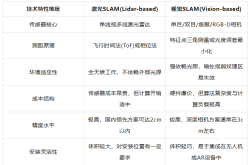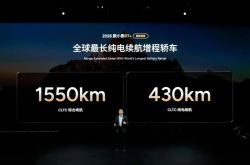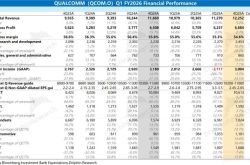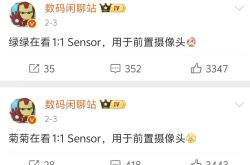AI-Powered Shopping Revolution: How Are Chinese Enterprises Responding?
![]() 10/09 2025
10/09 2025
![]() 484
484
Numerous listed companies are stepping up their strategic moves.

"Investor Network" Correspondent: Zhang Wei
Have you ever found yourself bogged down by repetitive tasks such as comparing prices and entering shipping details while shopping? Have you ever wondered if AI could make your shopping experience smoother? Well, that's no longer just a dream—it's becoming a reality. OpenAI is set to revolutionize the traditional shopping landscape.
Multiple media outlets have reported that, just before this year's National Day and Mid-Autumn Festival "double holidays," OpenAI's ChatGPT platform officially rolled out the "Instant Checkout" feature. This allows consumers to complete the entire shopping process—from inquiry to payment—right within the chat window.
Industry analysts believe that this innovation not only elevates AI from being a mere "information assistant" to a "transaction hub" but also signifies a profound shift in the e-commerce sector from a "traffic-driven" to an "intelligence-driven" paradigm.
At present, numerous domestic listed companies are also ramping up their strategic initiatives. As a shopper, you might soon find yourself enjoying a whole new shopping experience, thanks to ChatGPT's "Instant Checkout" feature.
Feature Analysis: A Shopping Revolution with Seamless Dialogues
According to OpenAI, the core innovation of ChatGPT's "Instant Checkout" lies in its ability to seamlessly integrate transaction processes into conversational contexts, effectively dismantling the operational barriers of traditional e-commerce.
Its operational logic revolves around a closed loop of "Agentic AI technology." Consumers can simply articulate their needs in natural language, such as "Find a vintage silver necklace suitable for gifting to my best friend." The system then sifts through relevant shopping platforms to recommend matching products based on the consumer's historical preferences, actively presenting key details like price, material, and user reviews.
Within the conversation, consumers can directly inquire about size specifications or custom engraving services, confirm their selections, and complete payment with a single click through a linked payment account—all without ever leaving the chat window, with an average completion time of under 90 seconds.
To make it easier for merchants to get on board, OpenAI has also introduced the "agentic commerce protocol" standard. This allows small and medium-sized enterprises (SMEs) to integrate without the need for complex technical development. They can also tap into user behavior data via ChatGPT to refine their product selection strategies.
Notably, the feature is offered to businesses entirely free of charge, with no interference in pricing or transaction commissions, thereby minimizing merchant resistance. For added technical security, the system adheres to international financial safety standards through encrypted identity verification and compliant payment gateway integration, addressing consumer concerns about the security of "dialogue-based transactions."
OpenAI asserts that this closed-loop design of "demand-recommendation-transaction-feedback" essentially translates AI's natural language understanding into commercial prowess. In contrast to the multi-layered path of traditional e-commerce—"search bar-product page-shopping cart-checkout page"—ChatGPT achieves instant "what you think is what you buy" responsiveness.
Industry Outlook: AI Propels E-Commerce into an "Efficiency Dividend Phase"
AVIC Securities has previously pointed out that the e-commerce industry is at a transformative crossroads, heading towards "intelligence-driven" models. The launch of ChatGPT's "Instant Checkout" feature serves as a validation of this judgment. AVIC Securities believes that, from an industry value perspective, this model will unlock triple dividends of "efficiency, cost reduction, and revenue growth," reshaping the e-commerce supply chain ecosystem.
For consumers, the most tangible benefit is an enhanced shopping experience that leads to higher conversion rates. In traditional e-commerce, user attrition due to cumbersome navigation and information overload can reach as high as 60%. ChatGPT's "zero-navigation" model, however, shortens decision-making chains by over 70%.
More critically, Agentic AI technology enables proactive service capabilities. For instance, it can remind users, "You previously preferred 925 silver; this product meets your requirements," based on their purchase history. This personalized interaction boosts recommendation accuracy to over 85%, significantly enhancing the shopping experience.
For merchants, especially SMEs, this represents a low-cost customer acquisition channel. By leveraging OpenAI's protocol interface, small businesses can tap into ChatGPT's vast user base without incurring heavy traffic acquisition costs. AI's precise demand interpretation also increases marketing ROI by over 30%.
AVIC Securities notes that AI is now empowering e-commerce across the entire supply chain, from product selection and content generation to customer service. The intelligent upgrade of SaaS tools will amplify this effect, driving the industry towards refined operations.
Guotai Junan Securities estimates that the "AI+" e-commerce model will cover over 30% of online transactions within the next three years, with instant-response transactions accounting for more than 15% of the share. Cross-border e-commerce and personalized goods sectors are expected to be the primary beneficiaries.
However, Huatai Securities points out challenges such as "user privacy protection, algorithmic transparency in AI recommendations, and cross-platform data interoperability standards," which must be addressed.
Domestic Deployments: From Technical Integration to Scenario Implementation
Statistics indicate that China's e-commerce penetration rate has soared from 24% in 2013 to 47% in 2024, meaning nearly half of internet users or residents engage in online shopping annually.
In response to the industry changes driven by OpenAI, numerous domestic listed companies are accelerating their deployments across three key dimensions: technical integration, scenario innovation, and ecosystem construction, forming a "tech giant-led + niche player-driven" landscape.
Public reports reveal that Baidu Group (09888.HK)'s "ERNIE Bot" has achieved deep integration with JD.com, enabling users to search for products, claim coupons, and place orders via conversation. Its "ERNIE Agent" function also automatically compares after-sales policies across stores.
Alibaba (09988.HK) has incorporated its cloud-based large model into Taobao's "Smart Shopping Guide," supporting voice-based ordering while utilizing AI selection systems to assist merchants in optimizing inventory. Related technologies have improved merchant stocking efficiency by 25% in the first half of the year.
Tencent (00700.HK)'s "Hunyuan" large model focuses on social e-commerce scenarios, embedding intelligent recommendations in WeChat's "Video Channel Store" to boost conversion rates through social networks.
Beyond the tech giants, cross-border e-commerce companies are also pioneering scenario implementations.
Jihong Group (002803.SZ) has integrated a vertical large model into its self-developed "Giikin" platform, achieving a closed loop of "intelligent product selection-multilingual content generation-precision advertising-instant ordering." Its cross-border e-commerce revenue reached RMB 2.116 billion in the first half of the year.
Focus Technology (002315.SZ) launched the "AI McKee" system, which provides multilingual customer service for export enterprises and supports sample confirmation and order payment in conversations, serving over 20,000 SMEs.
Huakai Yibai (300592.SZ)'s "Xiaoyi AI" focuses on cross-border inventory management, using large models to predict sales fluctuations and optimize restocking through instant ordering.
China Merchants Securities believes that e-commerce applications integrating high-quality large models will gain efficiency dividends first, with enterprises possessing long-text understanding and multi-scenario adaptability holding competitive advantages.
Conclusion: China's Path Demands "Technical Adaptation + Local Innovation"
Guojin Securities argues that ChatGPT's "Instant Checkout" feature represents AI's leap from being a tool to a commercial application, reshaping not just shopping processes but also the "people-goods-scene" connection.
For domestic enterprises, this presents both challenges and opportunities. Compared to OpenAI's early lead, Chinese companies have a deeper understanding of local consumer habits and possess richer experience in cross-border e-commerce and social shopping scenarios. With advancements in domestic large models and accumulated expertise in scenario development and ecosystem construction, a "technical adaptation + local innovation" path is not only feasible but also promising.
As data security systems continue to improve and algorithmic capabilities undergo upgrades, AI-driven instant transactions may well become the norm in e-commerce. Enterprises that deploy early will undoubtedly gain a competitive edge in the next round of competition. (Produced by Sino Wealth Media) ■
Source: Investor Network





